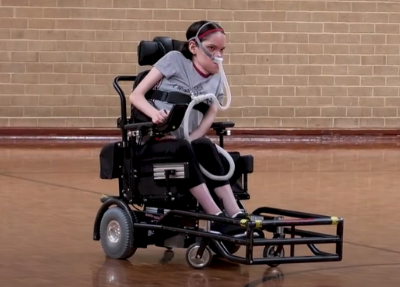How To Get An Assistance Animal
For people with a neuromuscular condition, an assistance animal can help with things such as opening doors, picking up items from the floor, pulling off socks or helping you keep your balance. All of these tasks can lead to an increase of independence for people with neuromuscular conditions and therefore, can assist with physical wellbeing as well as mental wellbeing. If you, or someone you know is looking at getting an assistant animal, keep reading for more information.
While a guide dog is the first type of assistance animal that most people think of, did you know that there are other kinds of ways animals can provide assistance?
For people with a neuromuscular condition, an assistance animal can help with things such as opening doors, picking up items from the floor, pulling off socks or helping you keep your balance. All of these tasks can lead to an increase of independence for people with neuromuscular conditions and therefore, can assist with physical wellbeing as well as mental wellbeing.
If you, or someone you know is looking at getting an assistant animal, keep reading for more information.
Determine Your Eligibility for an Assistant Animal?
First, understand your specific needs and whether an assistance animal is the right solution for your condition. There are a range of physical, psychological or intellectual factors that could contribute to somebody’s eligibility for an assistant, therapy or companion animal. For assistant animals, you can apply through the NDIS, who fund assistant animals after assessing whether they are suitable for your needs.
Consult a Healthcare Professional
Obtain a letter or documentation from a qualified healthcare professional (e.g., a doctor, psychologist, or psychiatrist) that confirms your need for an assistance animal. To be deemed eligible you require written input from the following parties:
A registered assistance animal provider
Allied health professional(s)
The participant
Generally, the NDIA will only fund an assistance animal which has passed, or will pass, your state or territory’s Public Access Test, to ensure they can accompany and support you as you participate in the community.
Choosing Your Animal & Training
Assistance animals are often dogs, but other animals can also be trained. Consider the type of animal that best suits your needs.
The animal must undergo specialised training to perform specific tasks that assist with your disability. You can either train the animal yourself, use a private trainer, or work with an accredited organisation. For assistant animals including in your NDIS plan, funding for training and extra maintenance costs may also be available.
Certification and Accreditation
While Australia doesn’t have a national accreditation program, some states have specific requirements. Check with local authorities about the necessary certification for your assistance animal.
In your application you may also be required to submit:
- Medical history form:
This provides evidence of the handler’s disability and ongoing dependence on the assistance dog. It can be completed by a medical practitioner.
- Assistance dog training form:
This is completed by a representative of the training institution
Legal Protections and Registration
In some states, assistance animals must be registered with local councils, and you may need to carry identification or certification for the animal. They are protected under Australian law, including the Disability Discrimination Act 1992.
Ongoing Care and Support
Ensure that your assistance animal receives proper care, including veterinary visits, and maintain their training to continue fulfilling their role effectively.
Know Your Rights
Make sure to familiarise yourself with the rights and responsibilities associated with owning an assistance animal, including access to public places and housing. Some of these rights are outlined in the Commonwealth Disability Discrimination Act 1992, which states that a person cannot be discriminated against if they have an assistant animal.
If an assistant animal isn’t for you, more information on other accessibility tools can be found on our Equipment page.
Have advice, 'how to' guides or a story you want to share? We want to hear from you!
You can submit your story or guide via our form. Provided your content meets our content requirements, your post will be published by a Loop moderator to the Living Life section.
Share your story



Join the conversation